
Ivory Coast will have a revenge battle over Egypt when the teams meet in the penultimate round of 16 matches at the Total Energies Africa Cup of Nations, set for the Japoma Stadium in Douala on Wednesday, 26 January. The two teams have had two iconic AFCON meetings since the turn of the century, the 2006 final and 2008 semifinal, both of which had Egypt emerge as victors through penalties after a 0-0 draw and 4-1 respectively.
However, with Ivory Coast being one of the most impressive teams on show in the Group Stage of this tournament leading Group E with an unbeaten record and fresh from completely outclassing a North African heavyweight in Algeria last Thursday, they have momentum on their side, and setting the record straight after the above-mentioned defeats will be a major motivating factor.
Head Coach Patrice Beaumelle insists his side still has vulnerabilities that need addressing. Meanwhile, Egypt had a stuttering Group D campaign and finished second behind Nigeria. The North Africans opened with a defeat to the Super Eagles, but recovered and steadily improved across their subsequent wins over Guinea-Bissau and Sudan. The problem with the Pharaohs’ side has been a lack of creativity and efficiency in attack, with star man Mohamed Salah notably short of his best form. Nonetheless, Coach Carlos Queiroz has promised an improved showing from their forwards.
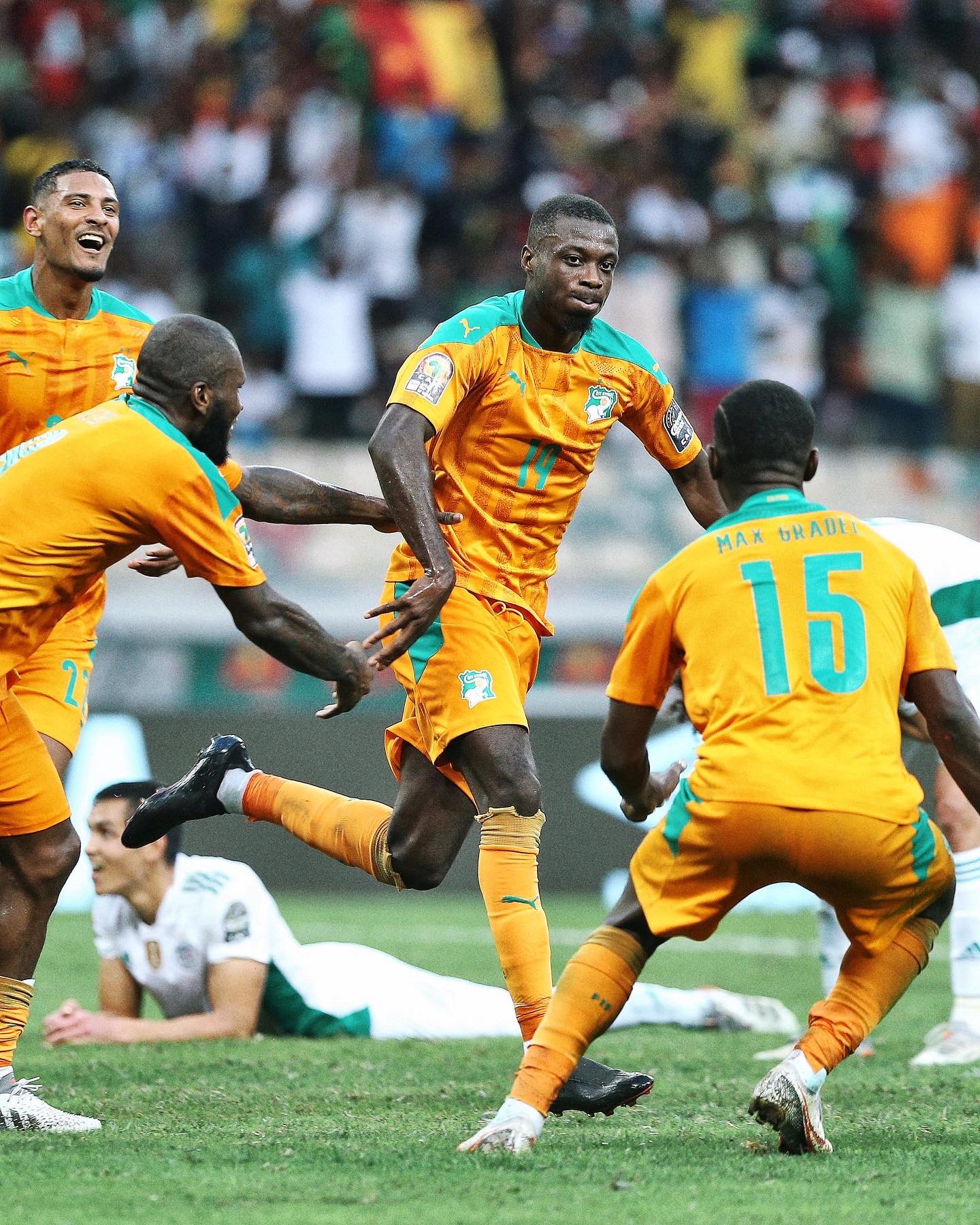
Ivory Coast players celebrate victory in a past match at 2021 AFCON
In head-to-head stats, Ivory Coast and Egypt have met in 21 matches across all competitions since their first clash back in 1970. The Pharaohs have claimed 11 wins compared to seven for the Elephants, while three games have been drawn.
The teams last met in an international friendly in Abu Dhabi in January 2013 which ended in a 4-2 win for the Ivory Coast, thanks to goals from Gervinho (two), Lacina Traore and Didier Ya Konan. They played their first international match against Dahomey, now known as Benin, which they won 3–2 on 13 April 1960 in Madagascar.
The team took a large 11–0 victory against the Central African Republic. In 1961 the team made their first appearance in the Africa Cup of Nations. After gaining independence from France, the team finished third in the 1963 and 1965 tournaments.
In the 1970 African Cup of Nations, the team finished top of their group, but lost to Ghana, the powerhouses of African football at the time during the semi-finals, and went on to finish 4th after losing the third-place play-off to the United Arab Republic currently Egypt. They failed to qualify for the 1972 edition, losing 4–3 to Congo-Brazzaville in the final qualifying round.
They qualified in 1974 but finished bottom of their group with only a single point, and then failed to qualify in 1976, again losing to Congo-Brazzaville (now simply known as the Congo) in the first round. The team initially qualified for 1978, beating Mali 2–1 on aggregate, but was disqualified for fielding an ineligible player in the second leg.
Mali was also disqualified, due to police and stadium security assaulting the match officials during the first leg, and so Upper Volta, who Ivory Coast had beaten in the first qualifying round, inherited their place. In 1984, the team hosted the African Cup of Nations for the first time but failed to get out of their group.
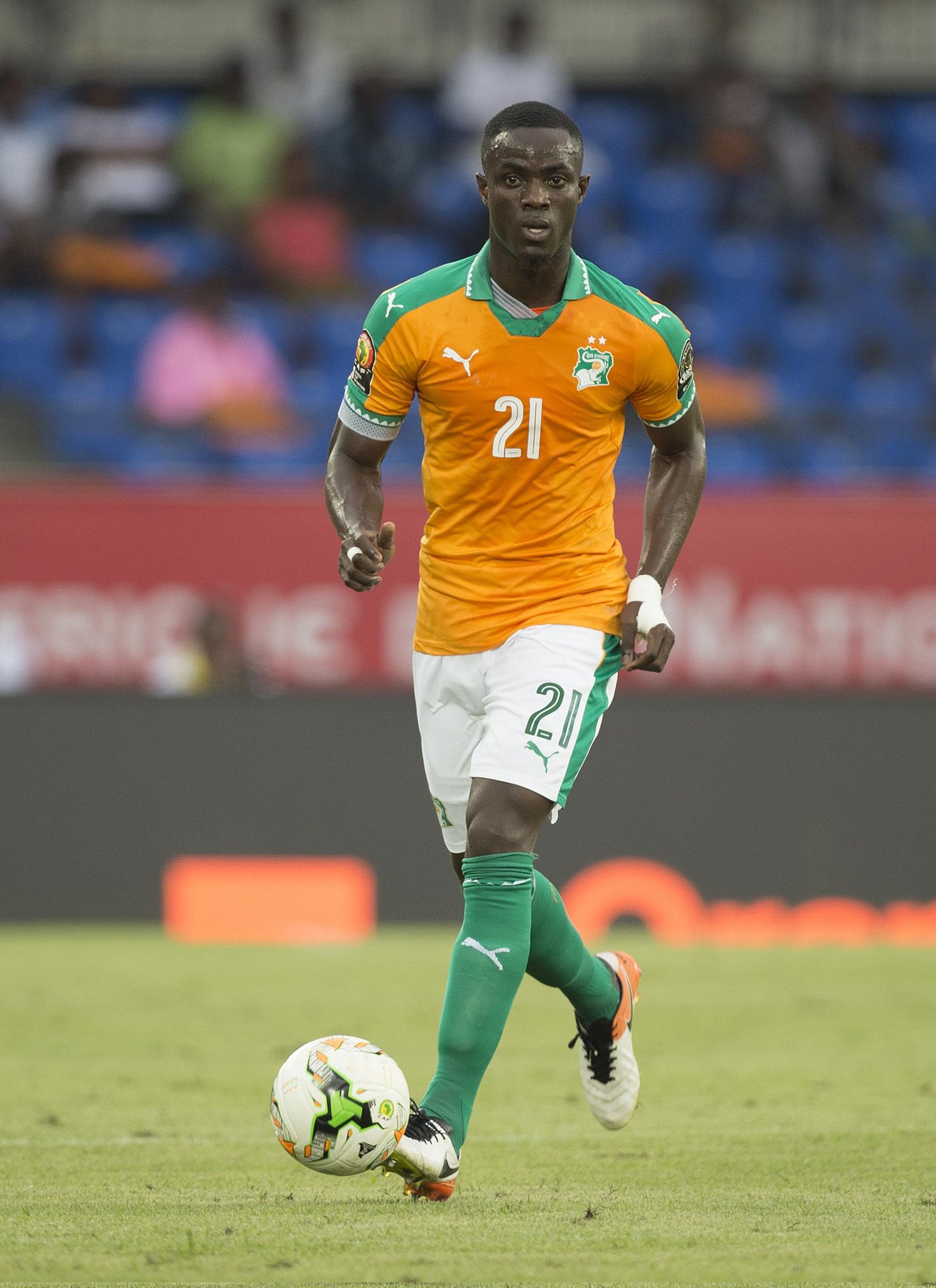
Manchester United defender Eric Bailly during their 2021 AFCON match
In 1986, they narrowly qualified from their group on goals scored and went on to finish third once more, beating Morocco 3–2 in the third-place play-off. At the 1992 Africa Cup of Nations, Ivory Coast beat Algeria 3–0 and drew 0–0 with Congo to finish top of their group. An extra-time victory over Zambia and a penalty shoot-out win over Cameroon took them to the final for the first time, where they faced Ghana.
The match again went to a penalty shoot-out, which became the highest-scoring in international football, where Ivory Coast eventually triumphed 11–10 to win the title for the first time. They were unable to defend their title in 1994, losing to Nigeria in the semi-finals.
Ivory Coast team is notable for having participated in and won the two highest-scoring penalty shoot-outs in the international football competition, the 24-shot shoot-out in the final of the 1992 African Cup of Nations when Ghana was defeated 11–10, and the 24-shot shoot-out in the quarter-final of the 2006 African Cup of Nations, when Cameroon was defeated 12–11. In 2015, Ivory Coast once again defeated Ghana in the final of a 2015 African Cup of Nations with a 22-shot shoot-out, winning 9–8.
In October 2005, Ivory Coast secured qualification for the 2006 FIFA World Cup, which was to be their first-ever appearance at the tournament. Having been drawn into a “Group of Death” that also featured Cameroon and Egypt, Ivory Coast went into the final match second behind Cameroon but qualified after beating Sudan 3-1 while Cameroon could only draw with Egypt.
Ivory Coast was drawn into another Group of Death, against Argentina, Holland, and Serbia and Montenegro, and lost 2–1 to Argentina with Didier Drogba scoring the team’s first-ever World Cup goal in the 82nd minute and then 2–1 to the Netherlands, meaning they had already been eliminated by the time they played Serbia and Montenegro.
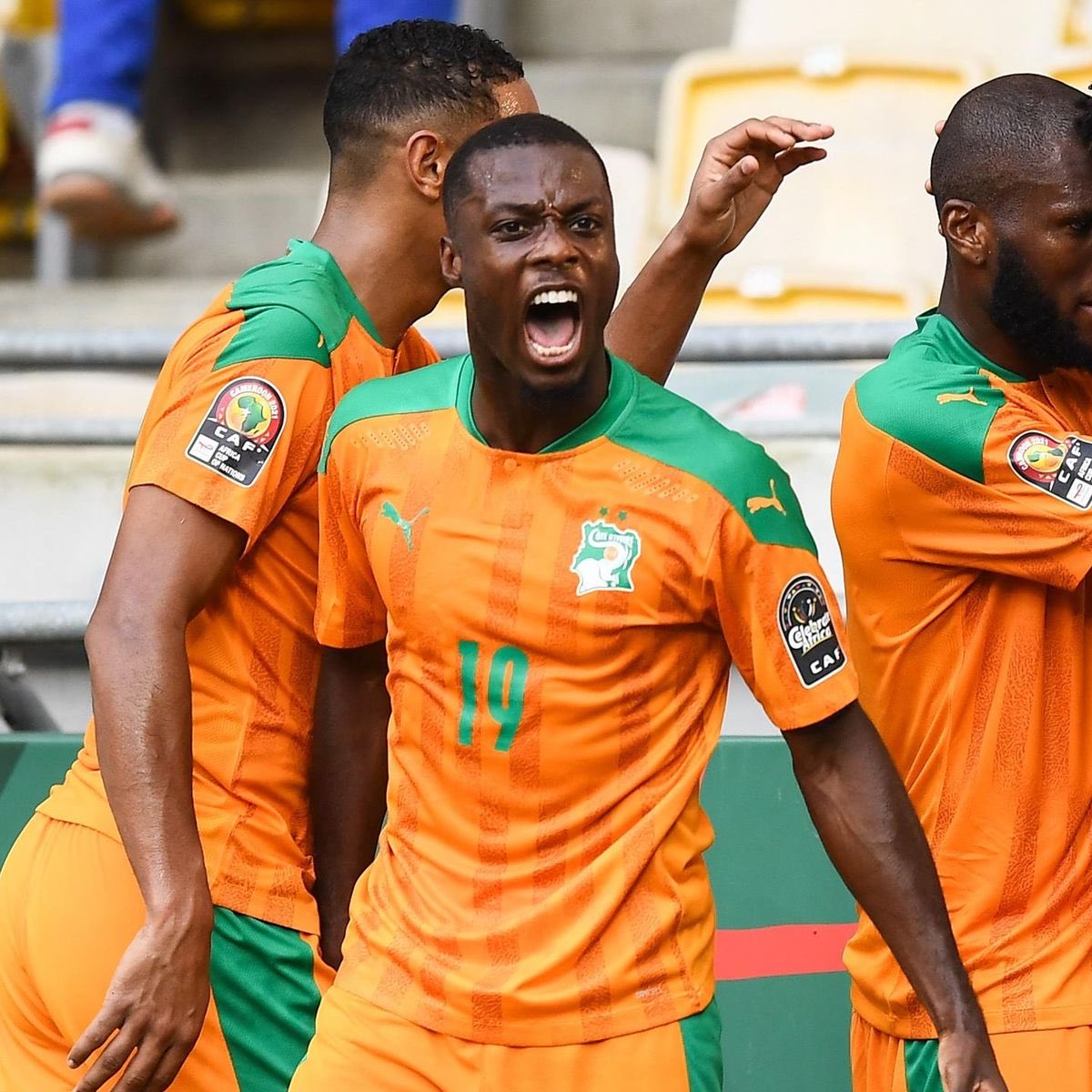
Ivory Coast players during the 2021 AFCON
Despite going 2-0 down after just 20 minutes, Ivory Coast came back to win 3–2, with Bonaventure Kalou scoring an 86th-minute penalty to give Ivory Coast their first-ever World Cup victory. After Uli Stielike left before the 2008 African Cup of Nations, due to his son’s health, co-trainer Gerard Gili took his position. To compensate for the lack of another co-coach, Didier Drogba acted as a player-coach.
This was only the second time that a player had also acted as a coach at the tournament after George Weah was both player and coach for Liberia during the 2002 tournament. The team qualified for the 2010 FIFA World Cup in South Africa and was again drawn in a “Group of Death”, against five-time champions Brazil, Portugal, and North Korea.
Having managed a 0–0 draw against Portugal, a 3–1 defeat to Brazil meant that in order to qualify from their group, they would have to beat North Korea, Brazil needed to beat Portugal, which scored a 7–0 win over North Korea and brought a substantial swing in goal difference. Ivory Coast won 3–0, but Portugal held Brazil to a 0–0 draw and Ivory Coast was once again eliminated in the group stages.
The team made a third appearance in the 2014 FIFA World Cup in Brazil, where they were drawn in Group C against Colombia, Greece, and Japan. After coming from behind to beat Japan 2–1, Ivory Coast then lost 2–1 to Colombia, leaving their qualification in the balance. In their final match against Greece, the score was 1-1 going into stoppage time, and with Japan losing 4–1 to Colombia, Ivory Coast looked set to qualify.
However, in the 93rd minute, Giovanni Sio gave away a penalty which Georgios Samaras converted, giving Greece both the victory and the place in the last 16; Ivory Coast, meanwhile, went out in the group stage for the third tournament in a row. The team’s streak of World Cup qualifications came to an end at the 2018 tournament. Needing a win in their final match against Morocco, they instead lost 2–0, meaning Morocco qualified instead.
A believer of Christ,radio/tv producer,journalist and the acme zenith of the prose convivial pedants.

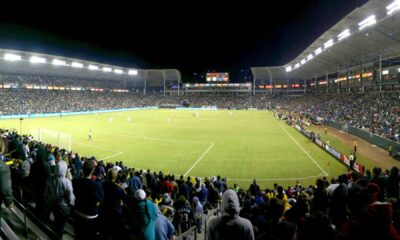

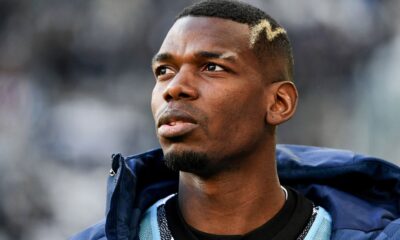

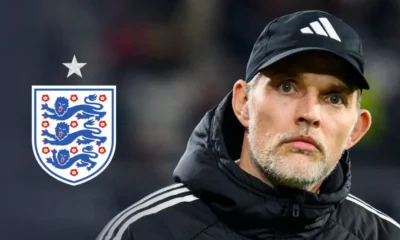

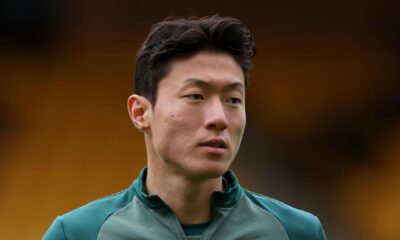





You must be logged in to post a comment Login